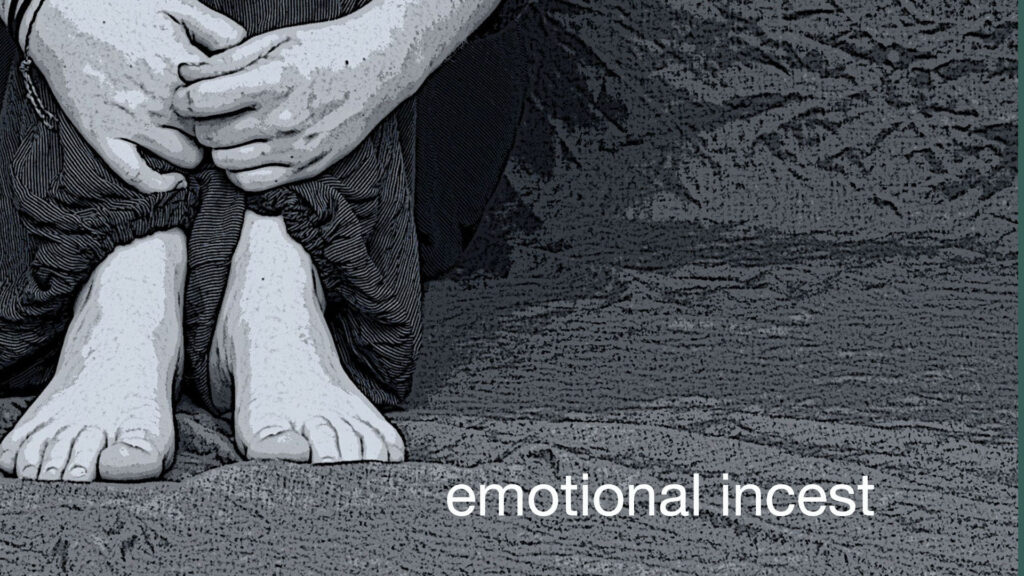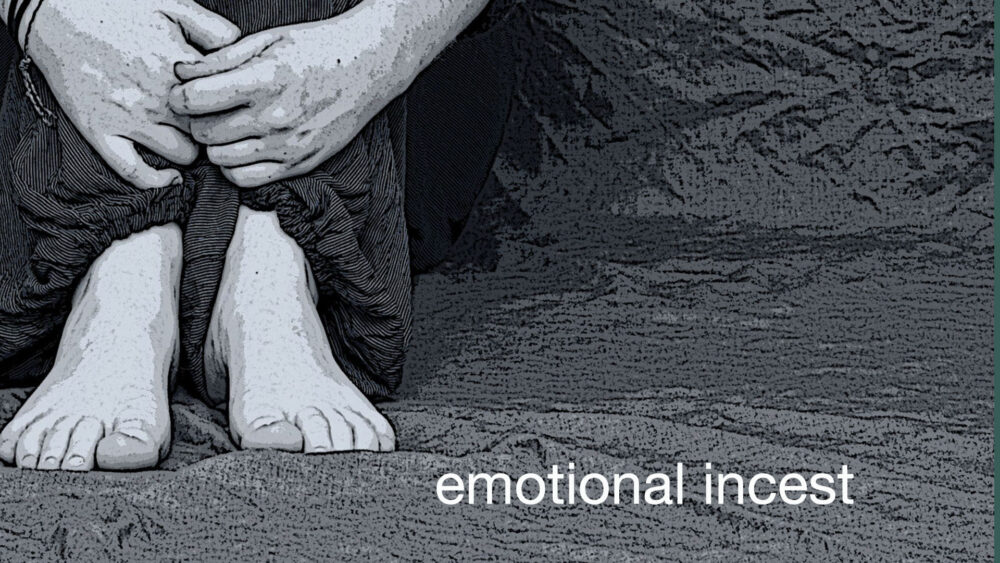
A healthy family system has clear separation between adults and children.” When there is no separation, an emotionally toxic relationship forms.
—Dr. Patricia Love
Emotional/Covert Incest
There no diagnosis for Emotional Incest Syndrome
Not often talked about, Emotional/Covert Incest has long-lasting effects.
When a parent lacks boundaries, they can rely on a child to fulfill their emotional needs. It is suffocating. The burden on the child results in problems with intimacy and a person can find that later in life, their relationships suffer.
In Emotional Incest, a child is forced to “shoulder” the burdens that a parent should have.
You may also see the term, “enmeshment”.
In these types of relationships between parent and child: boundaries are lacking, blurry and non-existent.
What is it?
Unlike incest, Covert Incest does not involve touching. It is non-sexual behaviour. There are behaviours like: commenting on the child’s body (mainly in a sexual manner; nicknames such as “boyfriend”, “girlfriend”, “my lover”, etc.; demands for attention to fulfill the parents’ emotional needs; engaging in sexual behaviour in front of the child (watching the child undress); and, inappropriate sex talk.
Some people will grow up not knowing that they have actually experienced emotional abuse.
Is There a Diagnosis?
Emotional Incest Syndrome is not in the DSM V. There is a scale to help people know if they have experienced it.
Bottom line: you were pressured to play an emotional role as a child to be a “partner” to a parent.
What Causes It?
One of the reasons is that a parent is unhappy in their relationship, or they are divorced or separated. Other causes are: grief/loss; lack of intimacy between your parents; domestic violence in the family; and fear of abandonment. The boundaries might have been crossed when the parent was a child. This is called “generational enmeshment”.
Personality disorders such as Narcissistic Personality Disorder can cause a parent to be inappropriate.
What Does it Look Like?
- Crying and expecting the child to comfort
- Telling secrets the child should not know
- Discouraging friendships
- Jealousy when the child is not close
- Sharing responsibility about finances, where to live
- Expecting compliments and praise
It may enter into sexual areas (without touching):
- Talking about their sexual experiences
- Spending time while nude
- Invading privacy
- Commenting on the child’s body in sexual ways
- Dates with the child
Long-Term Effects
People may grow up feeling burdened. They may feel frustrated and obligated in their relationship with a parent.
You may have trouble saying “no” and are a people-pleaser. You may feel responsible for the emotions of others.
Unfortunately, the effects of Covert Incest lead to problems like intimacy issues and disorders; sexual addictions; relationship issues. Some people will flee because they do not want the “pressure” of a relationship.
You may feel insecure and inadequate. Boundaries could be a problem along with anger and shame. There may be sexual dysfunction.
How to Heal?
Healing past trauma is possible. A therapist that you connect with and understands emotional abuse would help. Different types of therapy such as Cognitive Behaviour Therapy or EMDR (eye-movement desensitization and reprocessing might help.
Journaling, books, 12-step models, and group therapy can also help!
Recognizing is the first step. Then once you see how you may have Emotional Incest Syndrome, you can begin to take some steps to find peace.
Remember: you have done nothing wrong. You were a child. You can get help.
Sources:
1.https://www.modernintimacy.com/coping-with-emotional-incest-syndrome/
2.https://psychcentral.com/sex/emotional-incest-when-is-close-too-close
3.https://thedawnrehab.com/blog/the-damage-caused-by-covert-incest/

